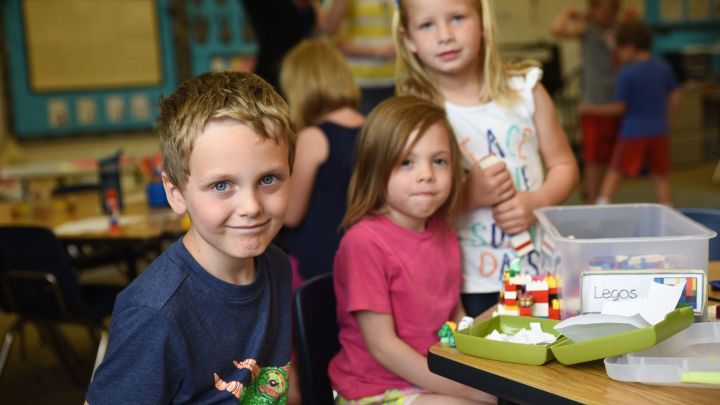Depression in the Classroom
The sun will come out soon…right?
Many of us are still attempting to plow (pun intended) through our historically dark and deep Winter of 2014. And it gets exhausting. The grown-ups get exhausted, and eventually, even the kids get exhausted. As exhilarating as numerous Snow Days can be, the whole thing becomes tiring and starts to feel relentless. Will it ever end? For just a few minutes, maybe we should think about how relentless, hopeless, and exhausting it feels -- if you are a kid.
Most of us grown-ups find it hard to believe that kids can feel hopeless, but they surely can. Some students are stuck in dysfunctional families due to conditions over which they have no control including poverty, mental illness, physical illness, or domestic violence. Some students are stuck in a school “job” for which they are not cognitively or emotionally equipped so they struggle with it and come to fear it every day until they graduate, or just stop attending. Some students are from great families in which they get a lot of support, and they are quick to understand and use all the new information they are presented with in school every day, yet they were born with a temperament or predisposition that makes them emotionally vulnerable.
Here are some of the behaviors these students may exhibit in your classroom or home:
- Expressionless face, no smiles
- Quick to become tearful
- Reports lots of aches and pains
- Lose their appetite
- Stop doing the things they used to enjoy
- Become irritable and moody
- Have trouble sleeping
- Express feelings of hopelessness, worthlessness, or guilt
- Avoid peers at recess and lunch
- Demonstrate low self-esteem
- Try to hurt themselves or talk of suicide
- Have trouble concentrating
Most likely, you are now thinking about the number of times you or your child have demonstrated some of these behaviors. And to demonstrate some of these behaviors some of the time is entirely normal (especially when the sun doesn’t shine for days at a time and you are stuck in the house all day unless you want to muscle through snow and shimmy across ice in single-digit temperatures). But when you or one of your students or kids demonstrates several of these behaviors frequently or severely, and those behaviors make it hard to remain productive and involved in healthy relationships and activities…you need to find professional help.
In the meantime, here are some strategies that teachers and parents can use in the classroom and at home to relieve the depression.
- Get to know your students individually early in the year
- Be consistent with your home/school communication, reporting both strengths and difficulties
- Remind the student of his or her strengths using genuine, descriptive praise
- Encourage the student to concentrate on what will happen today rather than looking way down the road when that anticipation may scare or discourage them
- Rephrase your students’ extreme language (e.g. “They all hate me.” to “Some of these kids aren’t my friends.” or “I’m stupid.” to “I need a little more practice.”, etc)
- Make sure they have healthy habits that encourage good sleep
- Continue to encourage their involvement in positive activities, even if it’s just attendance and not participation
- Supervise unstructured activities (e.g. recess, lunch) to provide support if the student is withdrawing entirely (e.g. assign a “recess buddy”, provide an alternative activity)
- Model positive self-talk
- Smile
Everybody gets sad and lonely at times, even kids, but that can be a “slippery slope” for kids if the grown-ups don’t get busy recognizing and addressing it. So even though we may be exhausted from this whole winter thing, or from any of the other things we deal with every day, let’s be sure to give some of our energy to brightening up our students who are dealing with depression so they can do their “job” every day too!

Sherri Rozema, Ph.D.
School Psychologist
Sherri Rozema, Ph.D. is a School Psychologist at All Belong where she enjoys working with individual students to study their strengths and difficulties, and THEN working with parents and teachers as a team to improve their school experiences.
